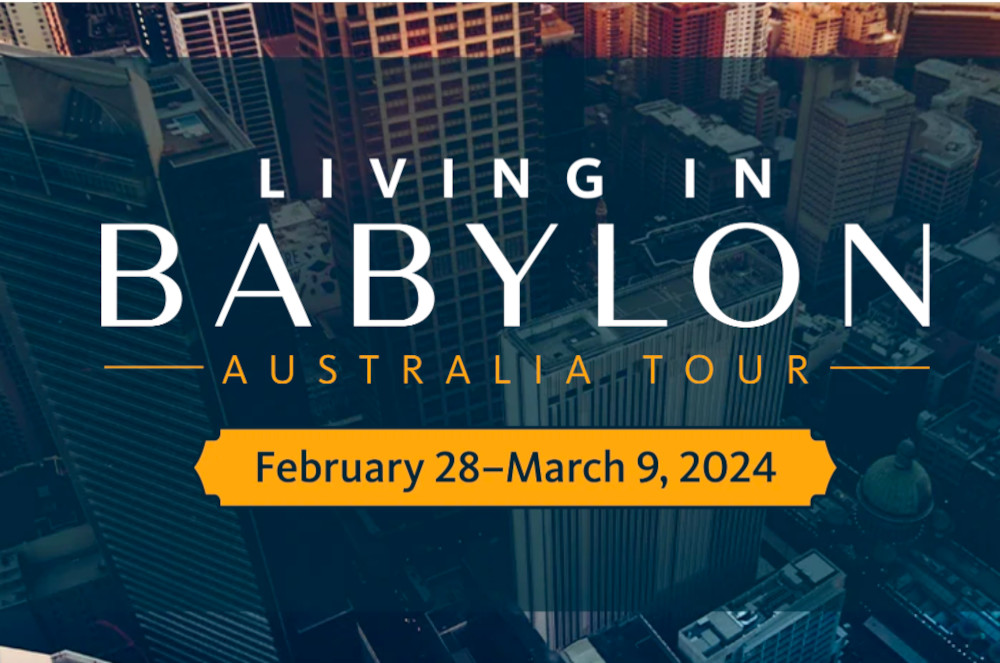Max Jeganathan, an experienced apologetics speaker returning to Australia to join the Centre for Public Christianity found that there’s a big increase of contempt in our society when he came back. He recalled a line from a Renée Zellweger character in a talk to the Freedom For faith conference: “Do you know what I hate the most? Having to listen to the moral ideas of lesser people.”
Jeganathan commented: “The capacity for Australians at the moment to engage with, even coexist with, views that they really disagree with is at an all time low.”
In a key section of his talk on Christian advocacy in the public square, he defined the “landscape” in which faith operates in Australia. Both the media and advocates putting forward their ideas of how our society operates often get things wrong in his view.
“Here’s where I might sound a little controversial, but there is much more nuance to what is happening out there than what you see in the headlines. And what you see from a lot of the advocates from all sides of things out there in the public square.”
There was Athens, the place where good discussion is possible: “In chapter 17 of the book of Acts, [Paul] first goes to the Jewish synagogue and he communicates the Christian message through the Jewish scriptures. Then he goes to the marketplace and he communicates it through the concepts of the marketplace. And then he goes to the Areopagus, which is basically a TED conference, and he gives a TED talk and he communicates it using the local poets. And everywhere he goes, he’s communicating ideas. He’s using the vernacular and the understanding and the concepts and the reference points of his audience.”
Well maybe Australian 2023 is a bit like that. But only a bit.
“And so, what the main street prevailing cultural narrative in today’s modern liberalism in countries like Australia will tell you is that we are in Athens. We are in this place where you’ve just got to communicate your views respectfully and people are open and they’ll listen to you. Now the reality is that there is an element of that. The fact that we can even have this conference shows that there’s an element of that, but that’s just not the case today in the way that we would like to think. This idea of a plural democracy and a plural liberalism is an operating in the purest way that it possibly could. All ideas are not welcome in the public space. So we are not in Athens”
At the other end of the spectrum is Babylon. “The other way this is often portrayed as … that we’re in Babylon, that there is persecution, that it’s never been harder than it is now to be a person of faith, to be a Christian, that the heads are rolling in the streets, that people are getting cancelled, that people are leaving jobs and losing jobs.
“With respect, I think we look at the nuance of it. That’s not true either. We are not in Babylon if for no other reason than simply the fact that Babylon was pre-Christian and this society is post-Christian. And most of the arguments that are happening now are happening at the level of ideals, irreducible concepts at the grassroots of civilisation, questions about what it means to be human, why we’re here. Purpose, meaning identity, morality. There’s our first principles.
“Babylon was just cutting people’s heads off at the second principle level. It was operating at the level of ideas, not ideals. Ideas are just suggestions as to a course of action or thought. Whereas ideals are fundamental principles that reflect a particular conception of the good or the good life. And so this is not Babylon in the way that Babylon was Babylon. And trying to stir people up in our communities and in our churches by telling them that they’re in Babylon is wrongheaded and it’s irresponsible. That’s bad theology, it’s bad politics and it’s unread history.
“Just as much as telling people out there that we’re in some kind of Athenian, wonderfully plural place where everyone’s got an open freedom to share their views is equally ridiculous. We’re somewhere in between and we need to understand the nuances and the complexity and bring some sophistication to the public debate of the public square in what we’re doing here.”
In rejecting both Babylon and Athens, Max Jeganathan’s analysis of modern society is following a similar path to Professor Chris Watkin’s schema of people leaning to philosophers Rousseau (Athens) vs Hobbes (Babylon). Our society is neither close to an enlightenment ideal – or approaching the savagery of a pagan brutal empire.
It will have escaped few at the Freedom for Faith meeting that Jeganathan provided an effective critique of the “Babylon” rallies run by former Australian Christian Lobby Managing Director Martyn Iles – and Iles is reprising them in his new role with Answers in Genesis. Not that Iles was mentioned in the talk.


